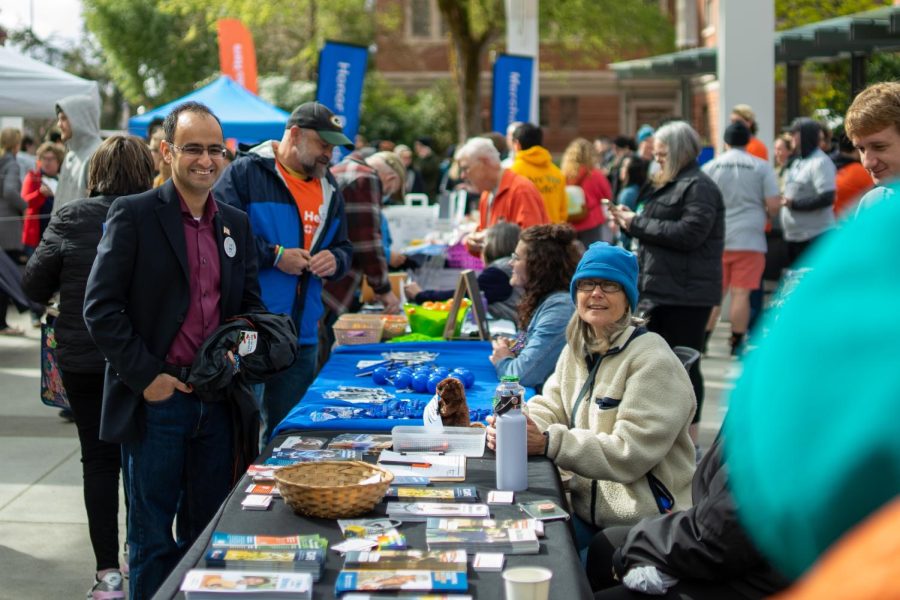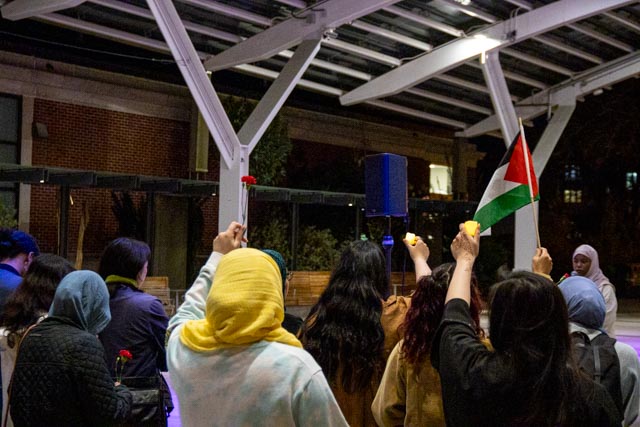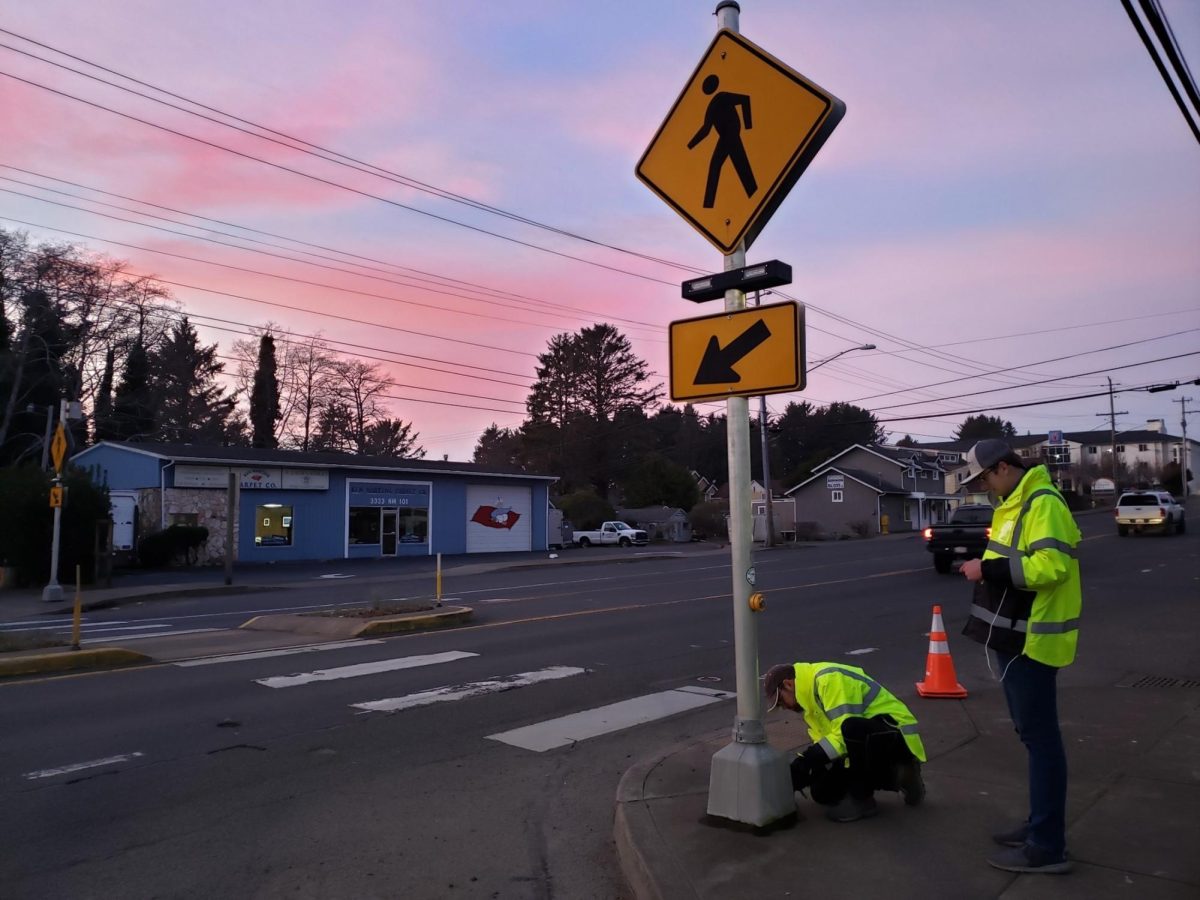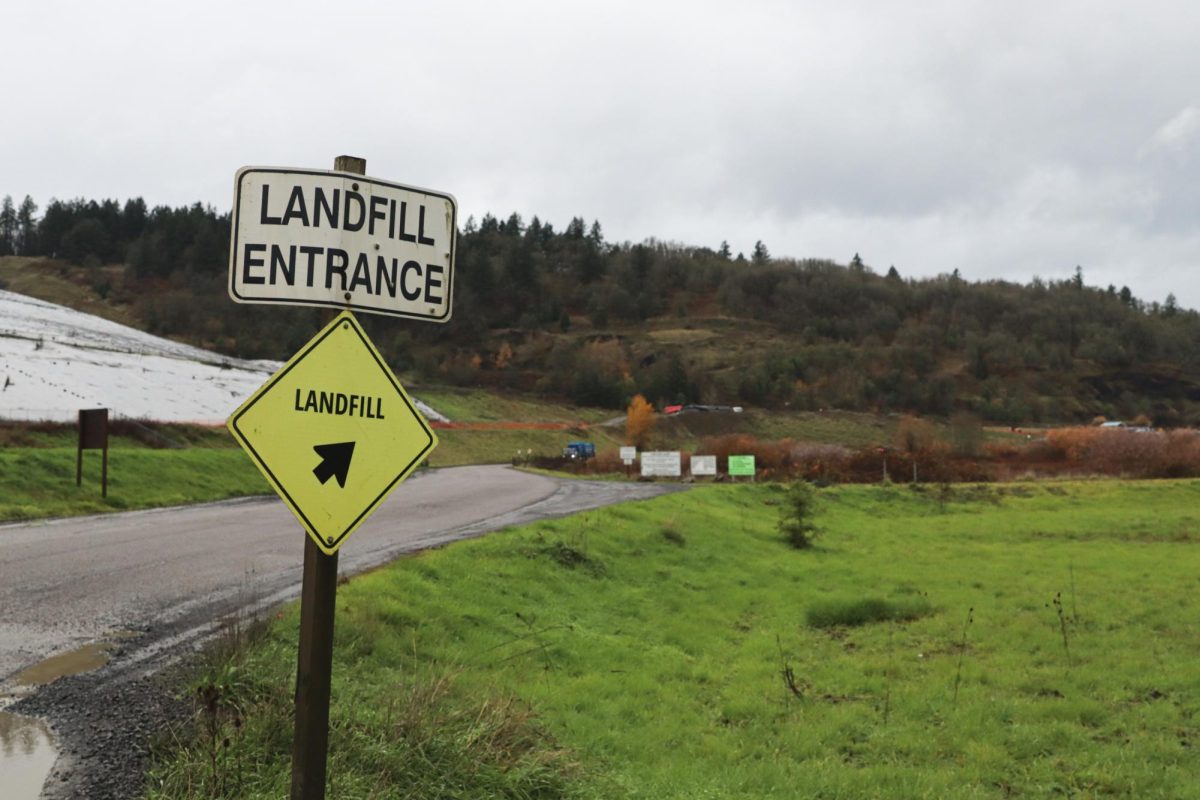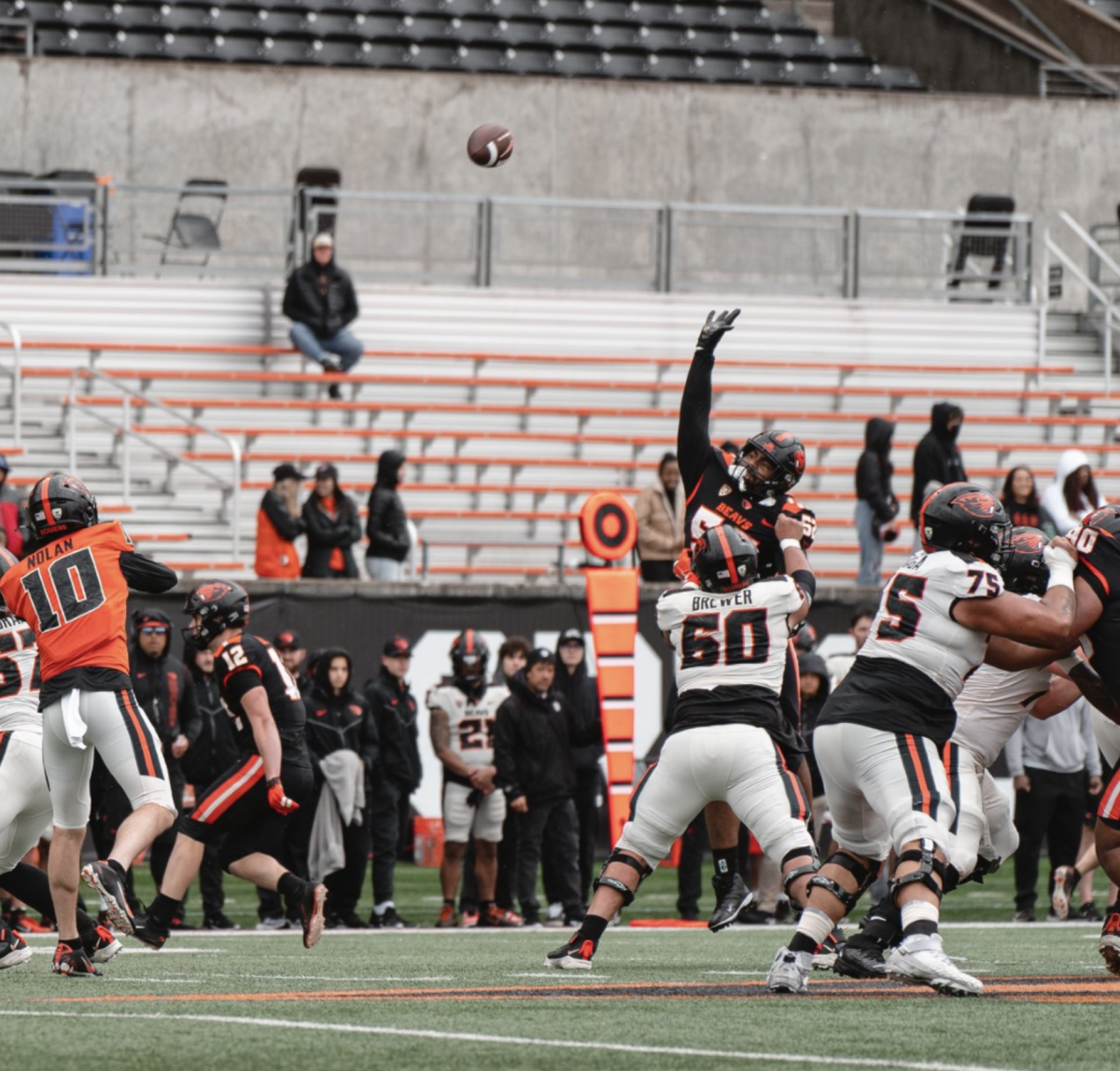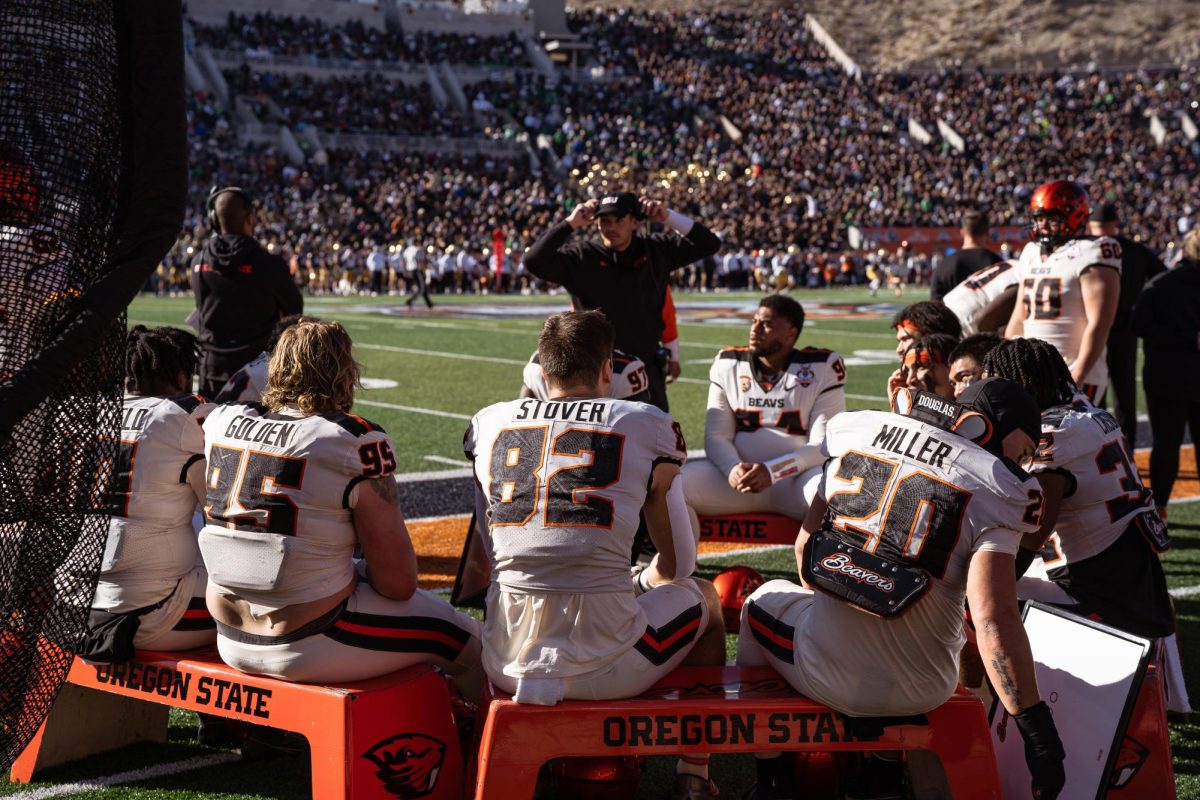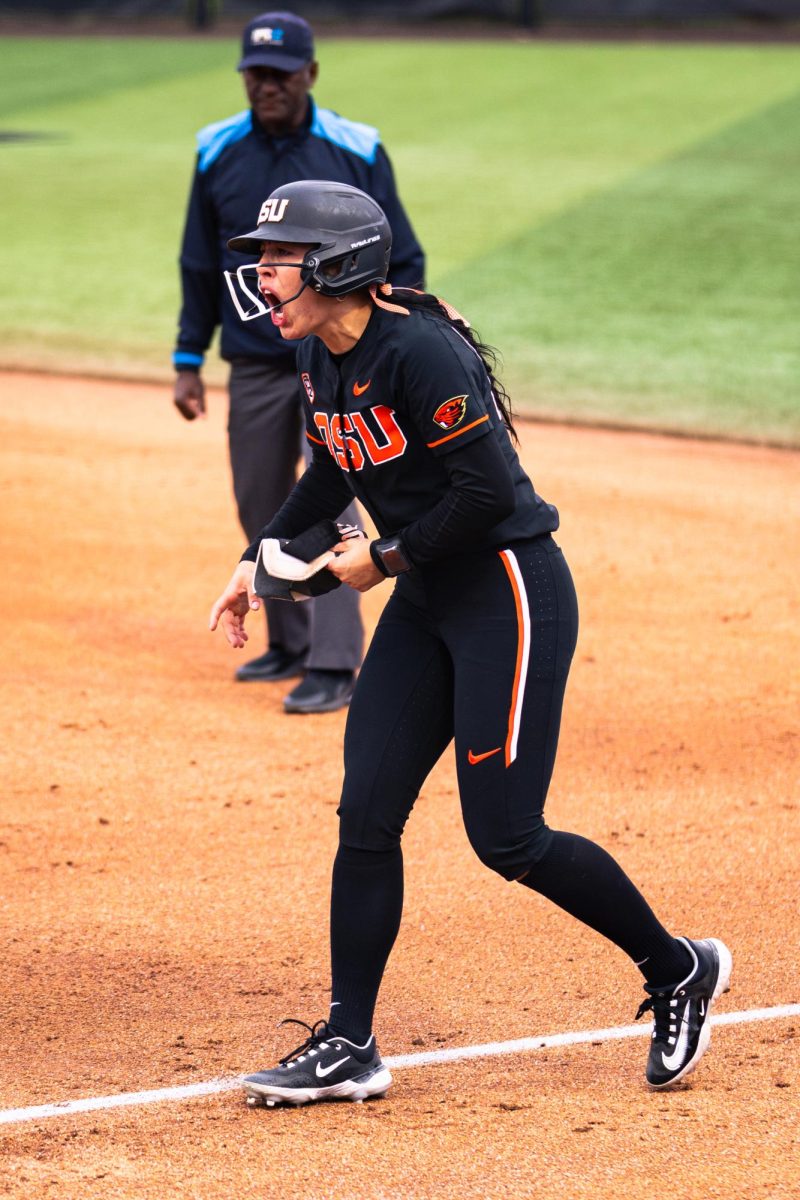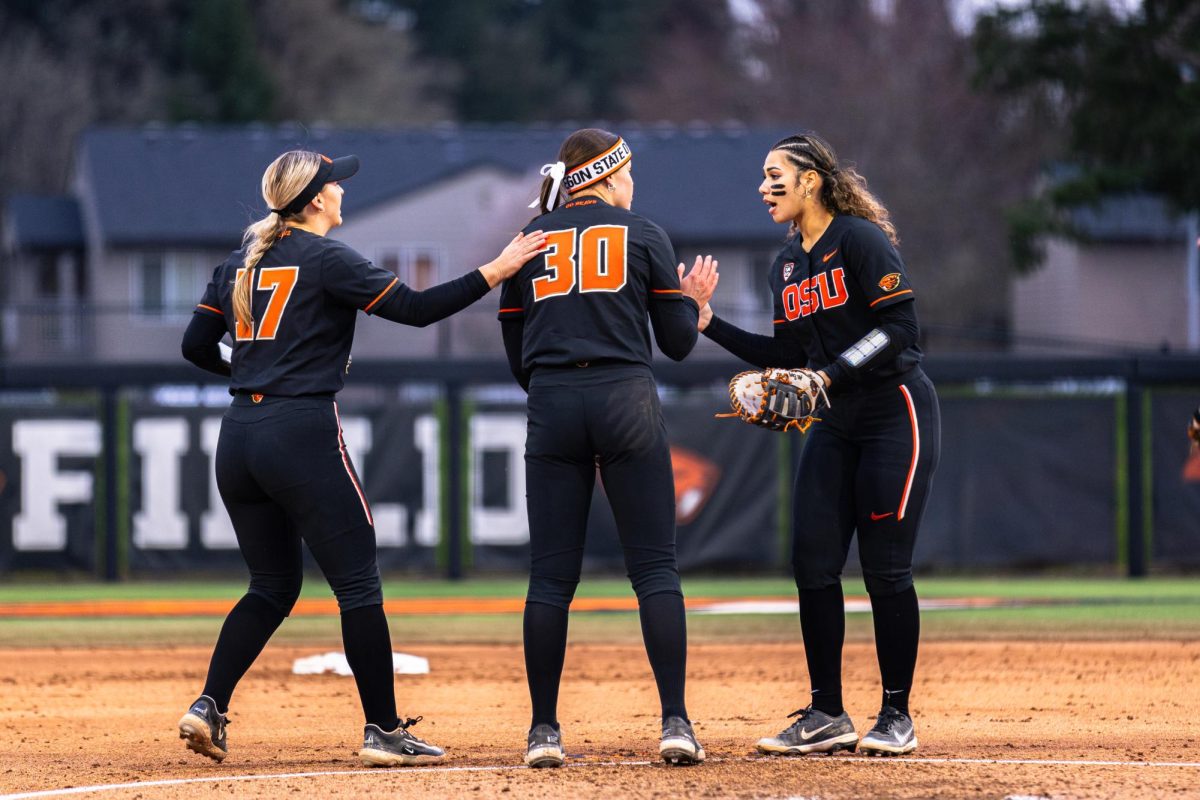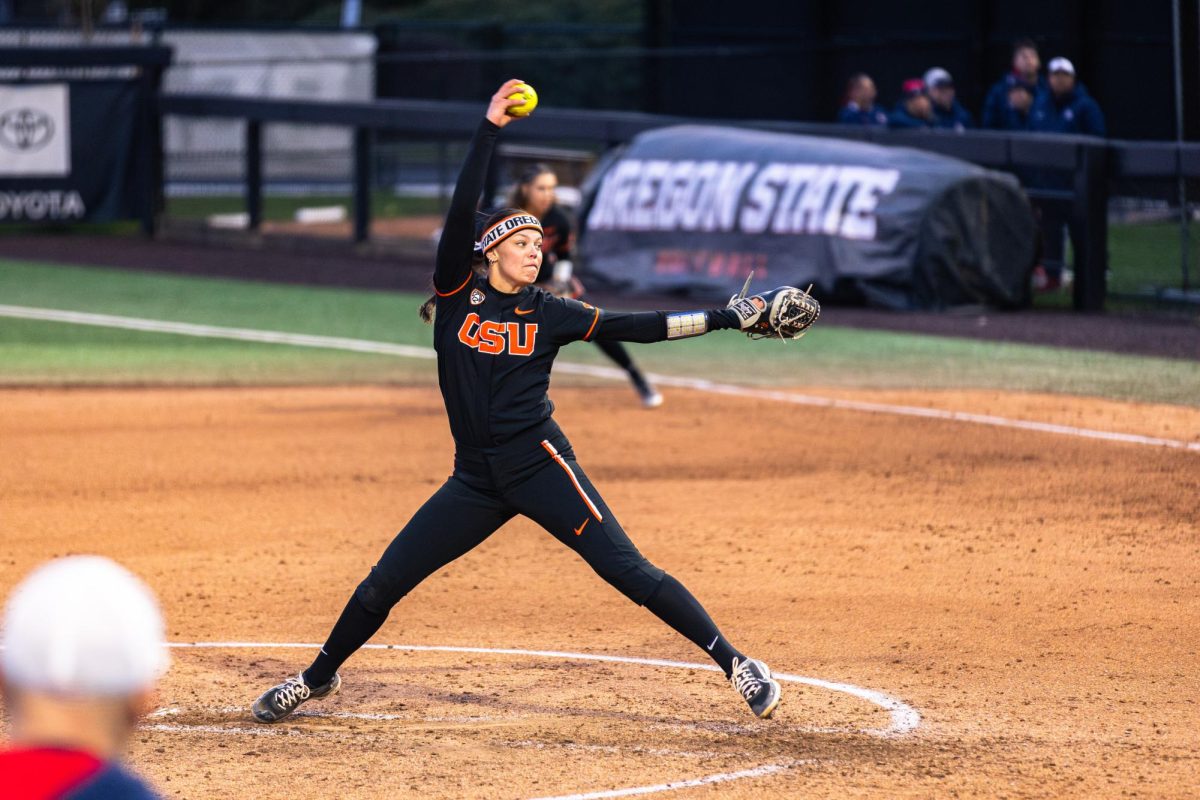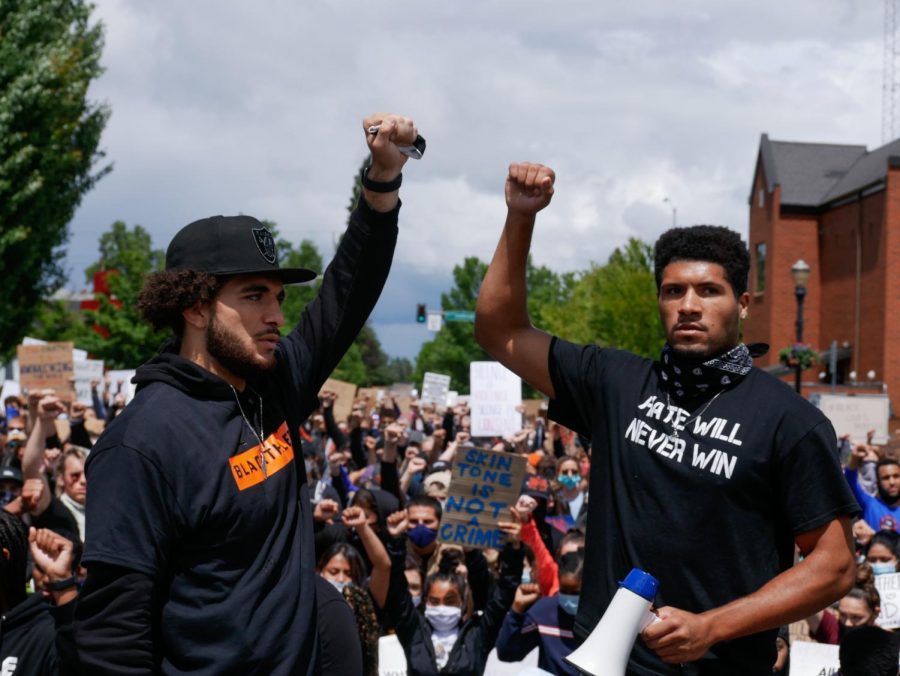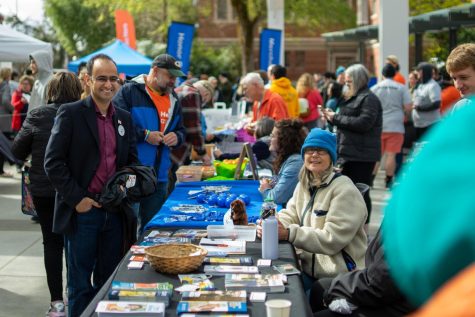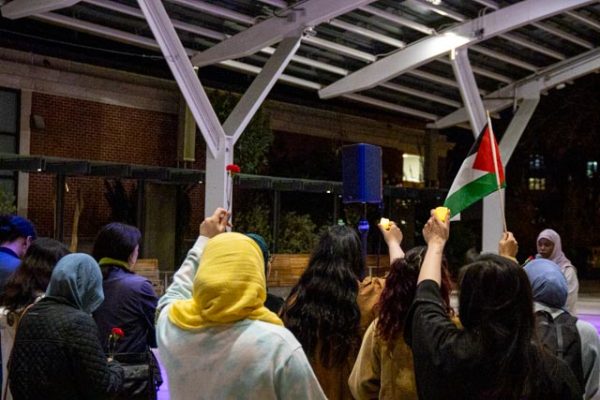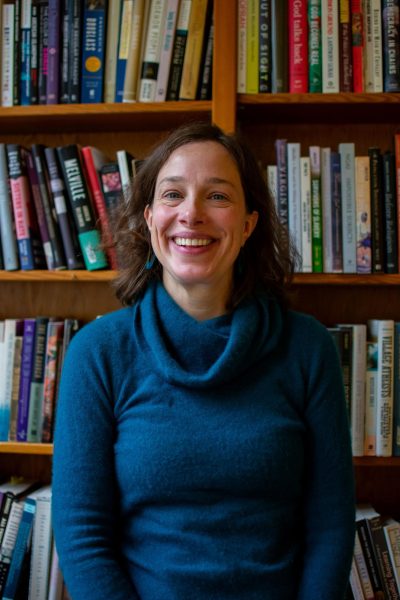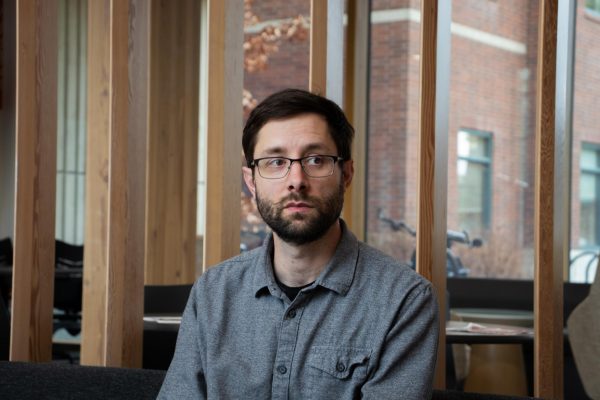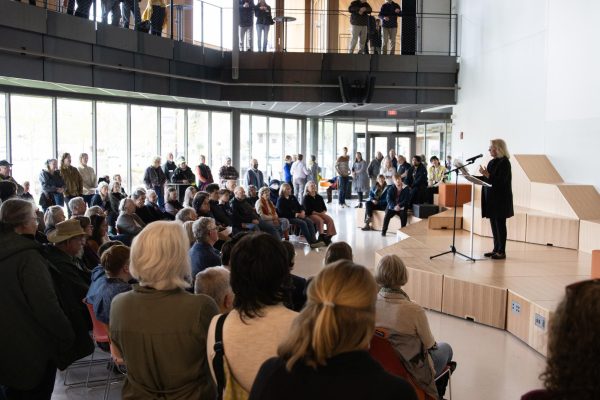Original play ‘The Upward-Beating Heart’ completes final showing
May 24, 2017
Sweating, beaming, arms raised, the cast of “The Upward-Beating Heart” bows for the final time. The play that began in November of last year ended Sunday, after two weeks of performances.
Such a long rehearsal process is atypical for theatre, but the extra time allowed the cast to write a completely original play under the direction of Elizabeth Helman. After auditioning in November, the cast of 12 (which expanded to 14 once the play was written) had a class together, where they collaborated to develop a setting, characters, conflicts and dialogue.
“One of the biggest hurdles we came up against was just figuring out what the heck we were gonna write about,” Mike Stephens, who played Guillermo, reflected.
At the start of the class, the cast got to know each other through activities where they shared personal thoughts and stories.
“We had a lot of journaling and vague prompts for in-class performances,” said Kyle Stockdall, who played Martin.
“It got very real. Sometimes people would cry in class… we had to tap into real emotions,” said Elena Ramirez, who played Adelita.
Many cast members experienced a learning curve of becoming comfortable enough to share about themselves within the group.
“Taking risks in general was something I feared early on, but as it went on and we got to know each other better I was more willing to take risks,” Thomas McKean, who played Federico, explained.
Rainer Maria Rilke’s “Letters to a Young Poet” served as a baseline inspiration for the play, and many quotes from the book became lines in the play. One recurring quote in the play was:
“That something is difficult must be one more reason for us to do it.”
Set in the Spanish Civil War, the cast members applied modern political tensions and universal human insecurities to a setting unfamiliar to many American students. The play addressed political, social and personal issues, some of which were inspired by the in-class prompts shared early in the writing process.
Each character within the play wrestled with deeply troubling problems, often with no clear solution. Monologues throughout the play revealed some of the stories behind the characters’ actions.
Casey Collins, who played Hermana Clara (“Milagros”), a character who was a nun, also felt tension in learning to share with the cast and developing the script.
“I had to choose between appeasing the audience with what I’d normally do–making them laugh–and being vulnerable and sharing my faith.” Collins described seeing her character as a role model.
The actors invented the histories of their characters and had to explore why each character made certain choices. Stephens described his character as a “misunderstood anti-hero.”
“What I would do is vastly different than what Guillermo would do,” Stephens said.
The show featured a few songs, written and composed by cast members. Such pieces revealed the talent and collaboration of the cast.
Throughout the performances, the cast continued to improve and learn more about the characters and themselves.
“You realize you might relate to the play more than you did before, or even your character,” Ramirez, identifying the themes of humanity unbound by time.
With a number of separations and deaths in the play, actors and audience members alike cried in intense moments, illuminating the raw message of the play.
The process and performance of the play impacted both the cast and the audiences who came to see it.
Stockdall captured one of the greatest messages of the play when he said, “If I had to say one thing I learned, it’s that everyone’s got a story that deserves to be listened to.”



